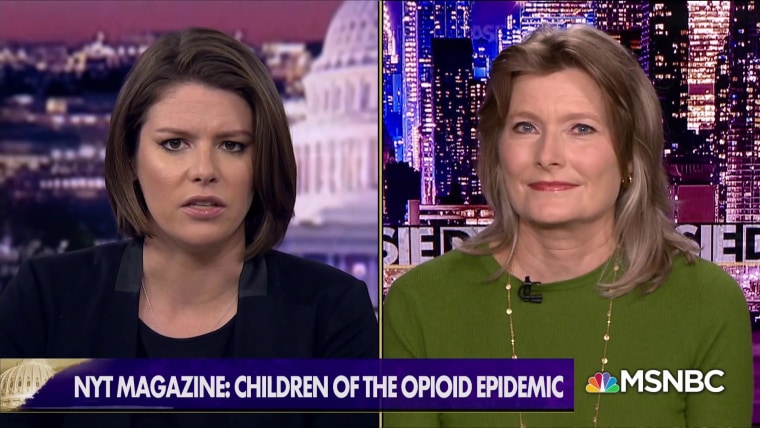WASHINGTON — The House on Friday passed the most ambitious congressional push yet to address the growing opioid epidemic, with provisions directing federal agencies to prioritize training, support recovery centers and expand research on several fronts.
The package, made up of 58 individual House-approved bills, is the largest legislative effort in recent history to address an epidemic that killed 42,000 people in 2016, according to the Centers for Disease Control and Prevention.
One of the provisions would direct the National Institutes of Health to develop nonaddictive painkillers. Another would try to change how prescription pills are distributed to reduce the potential for abuse.
The element of the bill garnering perhaps the most attention, Jessie’s Law, would require that medical records list a patient's addiction history.

The measure is named after 30-year-old Jessie Grubb, who died from a prescription opioid overdose after her doctor, unaware of her previous seven-year addiction to opioids, prescribed her pain pills following hip surgery.
Privacy advocates have raised concern that the measure could discourage addicts from seeking treatment for fear of retaliation if their addiction is leaked to law enforcement.
According to the CDC, 40 percent of all the opioid deaths in 2016 — 46 per day — involved prescription drugs.
The package also includes new tools giving the Border Patrol and the U.S. Postal Service greater ability to crack down on those who sell or traffic synthetic drugs, and to identify and stop those drugs, particularly the deadly narcotic fentanyl, from entering the United States.
The legislation, which passed overwhelmingly 396-14 on Friday, now heads to the Senate for consideration.
Friday's vote follows months of debate on both sides of Capitol Hill, with members holding hearings and voting bills out of committee in a rarely seen bipartisan fashion.
“This is costing us lives. This is why we’re so focused on ending this opioid epidemic,” Speaker Paul Ryan, R-Wis., said at a news conference last week. “This is all hands on deck, and we’re going to keep at this for the sake of families that are hurting right now.”
But critics say that opioid package and similar legislation being introduced in the Senate focus too much on research rather than on providing immediate solutions for those needing treatment.
"This bill makes incremental changes to support those affected by the opioid crisis, but it's far from perfect," Rep. Frank Pallone of New Jersey, the ranking Democrat on the House Energy and Commerce Committee, said before Friday's vote. "I do question if this bill will have a meaningful impact on the opioid crisis."
Though most bills passed with overwhelming bipartisan backing, several measures lacked overwhelming Democratic support, with concerns ranging from classification of fentanyl as a new controlled substance to the decision to give substance abuse users housing assistance at the expense of other needy persons, such as domestic abuse victims.
Democrats also objected to the decision to roll back a Medicaid provision that severely restricts the types of treatment facilities covered because the new language lifts that restriction for opioids addicts alone, rather than repealing it completely for all drug addicts.
The package's path in the Senate, where a number of committees are hashing out their own opioid proposals, remains uncertain. The Senate Health, Education, Labor and Pension committee approved a bipartisan regulatory bill in April that includes some provisions similar to those passed by the House, redirecting how federal health agencies deal with the crisis. Senate Majority Leader Mitch McConnell, R-Ky., said recently that the Senate could debate opioid legislation this year.
Any bill that is eventually passed by both chambers and signed by the president would build on past efforts by Congress to combat the epidemic, including $1 billion allotted in the 21st Century Cures Act of 2016. Congress also appropriated another $6 billion split evenly between the next two years in a government funding bill passed this year.
